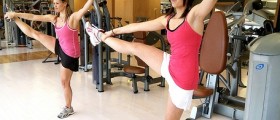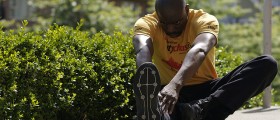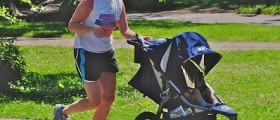
Light-headedness after exercise is a result of a lack of oxygen or blood supply to the brain. It is caused by low blood pressure or fast dehydration. Most common cause is stopping an intense exercise suddenly. In comparison to its normal rate, heart beats considerably faster during workout. The increased heart beat is pumping a sufficient amount of blood to the exercised muscles.
Difference between light-headedness and vertigo
This may lead to feeling lightheaded after exercise. Light-headedness or dizziness is similar to vertigo. The difference is that vertigo is accompanied by feeling spinning or tilting movement. When the blood is pumped into muscles during intense workout, it moves away from intestinal tract and may cause nausea. If light-headedness occurs during exercise, it may indicate a more serious problem, like heart condition. In case this happens, exercise should be stopped abruptly and medical help should be sought.
What to do if someone is experiencing light-headedness
When experiencing light-headedness, first step is getting the person to lie down so that the head is leveled with the heart. This will normalize the flow of blood to the brain and dizzy feeling should gradually disappear. This is one of the reasons why intense workout should always end by gradually reducing the exercise tempo. One of the examples is to keep jogging shortly at the end of a long distance run. Heat stroke is another major cause of dizziness.
Prevention
To avoid feeling dizzy or light-headed, it is important to keep a healthy nutritious diet. The body should be hydrated regularly. Easy snack before exercising can prevent light-headedness. It should be noted that a full meal before exercise, especially if it contains certain types of food, can lead to a lack of breath and also cause dizziness. This is why avoiding any food before work out is a good idea. The snack should not be bigger than a candy or power bar. To keep the exercising healthy and productive, it is necessary to warm up at start and cool down at the end. Warm up should contain stretching exercises that warm up the body and prepare it for the further efforts. During the course of the workout it is important to breathe properly. Breathing sends oxygen to muscles and brain and prevents dizziness. It often happens that inexperienced people hold their breath while exercising, which leads to light-headedness or even fainting. Continued exercise increases the body stamina, and decreases chances of experiencing dizziness. Like mentioned before, light-headedness is not a big problem on its own. But if it occurs frequently it will impact the course of healthy exercise and slow down the progress rate.

















Your thoughts on this
Loading...